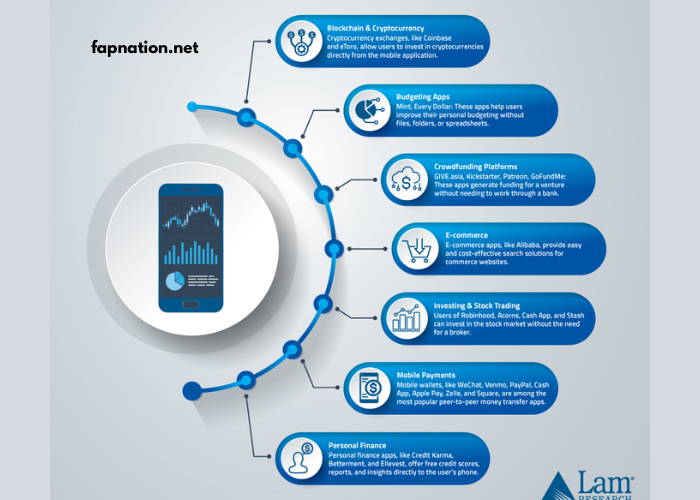In today’s fast-paced world, where work, family, and social obligations demand constant attention, maintaining mental health can be a challenge. Many people find themselves overwhelmed by stress, anxiety, and a sense of burnout. However, improving mental health is not only possible, but it is also essential for achieving a balanced and fulfilling life. This article will explore various strategies and habits that can help you manage your mental health effectively, even in the busiest of times.
Why Mental Health Matters in a Busy World
Before diving into specific techniques for improving mental health, it’s important to understand why mental health is critical. Good mental health enables us to cope with the stresses of daily life, maintain healthy relationships, make decisions, and be productive. When mental health is compromised, it can lead to a variety of issues, such as:
- Increased stress and anxiety
- Difficulty concentrating and making decisions
- Poor sleep quality
- Decreased productivity and motivation
- Strained relationships with family, friends, and coworkers
Recognizing the importance of mental health and taking steps to prioritize it can lead to better overall well-being and a more fulfilling life.
Practical Ways to Improve Your Mental Health
1. Establish a Routine
A structured routine provides a sense of stability and control in your day. When life feels chaotic, a routine can help reduce anxiety by setting clear expectations for what comes next. This can include:
- Morning rituals: Start your day with a positive habit, such as stretching, journaling, or a healthy breakfast. This will set the tone for the day ahead.
- Work and break schedules: Stick to a work schedule with regular breaks to avoid burnout. Techniques like the Pomodoro method (working in 25-minute intervals with 5-minute breaks) can be especially effective.
- Evening rituals: Wind down with relaxing activities such as reading, meditation, or a warm bath before going to bed. This can improve sleep quality and reduce stress.
2. Practice Mindfulness and Meditation
Mindfulness and meditation are powerful tools that can significantly improve mental health. These practices help you stay present and engaged in the moment, reducing feelings of stress and anxiety.
- Mindfulness: This involves focusing on the present moment without judgment. Whether you’re eating, working, or walking, try to stay mindful of your thoughts, feelings, and surroundings.
- Meditation: Even just 10 minutes a day can help calm the mind and reduce stress. Guided meditation apps, such as Headspace or Calm, can be a helpful resource for beginners.
By incorporating mindfulness into your daily life, you’ll build resilience against the overwhelming thoughts and worries that often arise in busy environments.
3. Prioritize Self-Care
Taking care of yourself is essential for maintaining mental health, especially in a busy world. Self-care includes anything you do to nurture your physical, emotional, and psychological well-being. Some simple self-care practices include:
- Exercise: Regular physical activity is proven to reduce stress and improve mood. Even short walks or light stretching can have significant benefits.
- Nutrition: Eating a balanced diet that includes plenty of fruits, vegetables, and whole grains can positively impact your mental health.
- Sleep: Quality sleep is essential for mental well-being. Aim for 7-9 hours of sleep each night and establish a bedtime routine to promote restful sleep.
- Hobbies: Engage in activities that bring you joy and relaxation. Whether it’s painting, gardening, or listening to music, hobbies are a great way to de-stress.
By prioritizing self-care, you’re sending the message to yourself that your well-being is worth taking care of.
4. Set Realistic Expectations and Boundaries
In a busy world, it can be easy to overcommit and stretch yourself thin. However, constantly juggling multiple responsibilities without setting clear boundaries can lead to burnout.
- Learn to say no: It’s okay to decline invitations or extra work if it’s going to compromise your well-being. Setting boundaries with work, friends, and family can help you maintain a healthier balance.
- Set realistic goals: Break down larger tasks into smaller, more manageable steps. Avoid perfectionism by setting goals that are achievable and align with your current energy levels.
Setting realistic expectations for yourself ensures that you can give your best effort without exhausting yourself.
5. Seek Social Support
Social connection is vital for maintaining good mental health. In a busy world, it can be easy to isolate yourself, but maintaining relationships with friends, family, and colleagues can provide emotional support when times get tough.
- Make time for loved ones: Schedule regular catch-ups with friends or family members, even if it’s just a quick phone call. Social interactions, even brief ones, can help you feel more connected and supported.
- Join a community: If you’re feeling isolated, consider joining a group or community that aligns with your interests. Whether it’s a sports team, a book club, or a support group, being around like-minded individuals can improve your mental well-being.
Having a support system gives you the strength to face challenges and reduces feelings of loneliness or stress.
6. Limit Screen Time and Information Overload
Constant exposure to screens, social media, and the news can have a negative impact on mental health. The 24/7 nature of information can lead to feelings of anxiety, stress, and even depression.
- Set screen time limits: Try limiting your use of social media or news apps. You can use apps to monitor your screen time and set daily limits for different activities.
- Take digital detoxes: Set aside specific times during the day to disconnect from all devices. Use this time for self-care, socializing, or engaging in offline activities.
By limiting your screen time and curating your digital consumption, you can protect your mental health from the overwhelming flood of information.
7. Practice Gratitude
Practicing gratitude is a simple but powerful way to improve mental health. When we focus on the things we are thankful for, it shifts our attention from stress and worry to positivity.
- Keep a gratitude journal: Write down three things you’re grateful for each day. These can be small things, like a warm cup of coffee or a compliment from a friend.
- Express gratitude: Take the time to thank those around you for their support or kindness. Acknowledging the positive things in your life helps foster an optimistic mindset.
By making gratitude a regular practice, you’ll train your mind to focus on the positive aspects of life, helping to improve your mental outlook.
8. Seek Professional Help When Needed
Sometimes, despite our best efforts, mental health challenges may require professional support. There’s no shame in seeking help from a therapist, counselor, or psychiatrist if you’re struggling with mental health issues like depression or anxiety.
- Therapy: Talking to a therapist provides a safe space to explore your feelings and learn coping strategies. Cognitive-behavioral therapy (CBT) is a popular therapeutic approach that helps individuals change negative thought patterns.
- Medication: In some cases, medication may be necessary to manage mental health conditions. Consult a healthcare provider to discuss your options.
Seeking professional help is a proactive step toward managing your mental health in a busy world.
Conclusion
Improving your mental health in a busy world requires intentional effort and self-compassion. By establishing a routine, practicing mindfulness, prioritizing self-care, setting boundaries, seeking social support, and embracing gratitude, you can create a solid foundation for mental well-being. Additionally, don’t hesitate to seek professional help if needed.
In a society that constantly demands more from us, it’s crucial to take time for yourself, prioritize your mental health, and recognize that it’s okay to take a break. By taking small, consistent steps toward mental wellness, you can thrive even in the busiest of times.
Remember, your mental health matters. Take care of it as you would any other important aspect of your life, and you will reap the benefits of a more balanced, resilient, and fulfilled existence.



